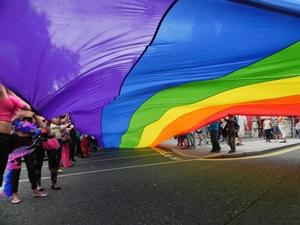Homophobia in Ireland: forgotten but not gone?

There have been some significant steps forward in LGBT rights in Ireland in the last few years, but homophobia is still a problem. This needs to be addressed by significant changes to the education system, writes Alan Moss.
2011 has so far been an important year in the progression of LGBT rights in Ireland. Since January 1st, civil partnerships have, for the first time in the history of the state, legally recognized same sex couples. Last month, Dublin’s city centre was draped with rainbow flags to celebrate the annual Pride Festival – a colourful week of activities that culminated in the Pride Parade.
On the face of it, Ireland would seem to have fully welcomed the rights of the gay community. After all, isn’t there a gay man running for president? Yet it takes very little effort to scratch away this hollow surface of acceptance. Homophobia in Ireland is rife. To ignore it is dangerous – it promises false and misleading sense of security.
News broke last week that a well-known Irish journalist was approached by two men in a popular city centre restaurant. The man admitted to having attended a gay event at Dandelion on Stephen’s Green in Dublin. The journalist was then attacked by the two men in their twenties and the Gardaí are treating the incident as a homophobic attack.
The case is sadly not a once off unfortunate blip in Ireland’s otherwise gay-friendly atmosphere. A similar incident occurred earlier this year when a man in his twenties managed to punch openly gay TV personality, Brendan Courtney in the face while with eight friends in Dublin city centre. What is interesting about both cases is that the perpetrators in both were young men. Claims that homophobia is a dying phenomenon, linked only to the more elderly people in society, are both false and dangerously over simplistic.
The incidents are made all the more tragic when those who are being attacked are those who are attempting to live their lives openly and freely. They are the ones that by refusing to stay hidden ‘in the closet’ are doing a great service to those LGBT people who have yet to ‘come out’, paving the way and making it more publicly acceptable to live life openly as a gay person.
Homophobia isn’t always evident in the form of violent attacks. It comes in many varieties and levels of extremity. For most LGBT people, their first experience of homophobia happens in school. Children start to use homophobic insults at a young age because they see it as something different or weird. As they get older, it may be obvious that certain children are gay or lesbian, making them easy targets for bullying. The figures on homophobic bullying in Ireland and elsewhere speak for themselves. Worryingly, the levels of teen suicide are far greater amongst those who identify as LGBT. Therefore, surely the most effective way to extinguish homophobia in society is to start in primary schools. A comprehensive sexual education, which would teaches that homosexuality is a normality rather than something weird or different, needs to be given to all children.
The results of a recent Department of Education in-service course show the problems with our current systems. Where primary school teachers felt readily equipped to deal with racist or other types of bullying, they did not identify as being as confident in dealing with homophobia. This is a major problem. This ambiguity around homosexuality in the minds of our youth is the main reason for the prevalence of homophobia in our society. This stays with people throughout adult life.
While very few people in Ireland would go anywhere near the extremes of physically attacking someone due to their sexual orientation, that is not to say that homophobia is not widely prevalent in a less obvious, more subtle, yet equally detrimental manner. While the young LGBT people undeniably are enjoying a far safer and more inclusive environment that those even just ten years older than them, it would be dangerous to rest on our laurels. The main focus for the development and wellbeing of all our children, not just the LGBT ones, should be on promoting inclusiveness and a well-rounded sexual education in our primary and secondary schools.
Image Top: Barnacles Hostel
